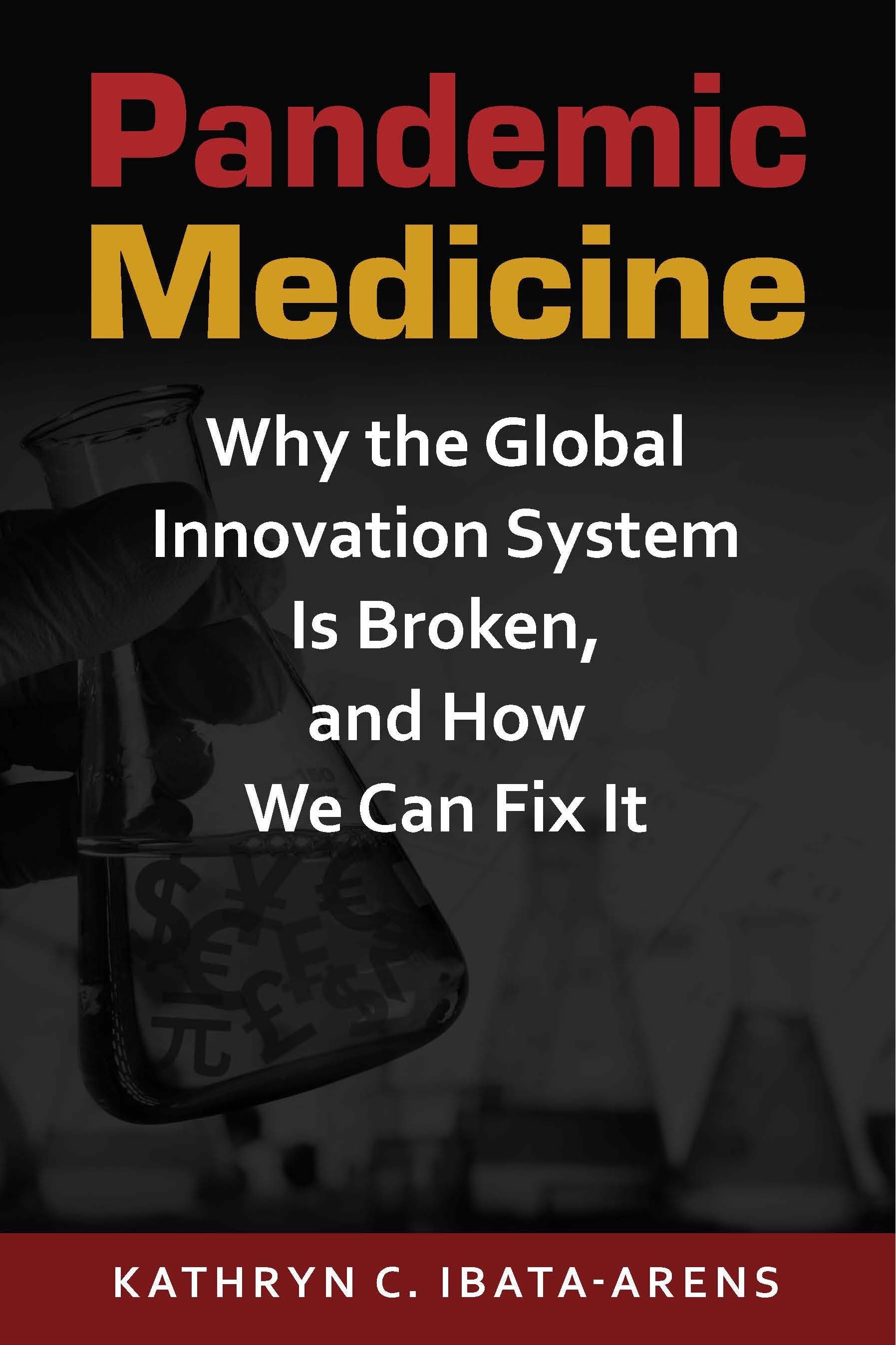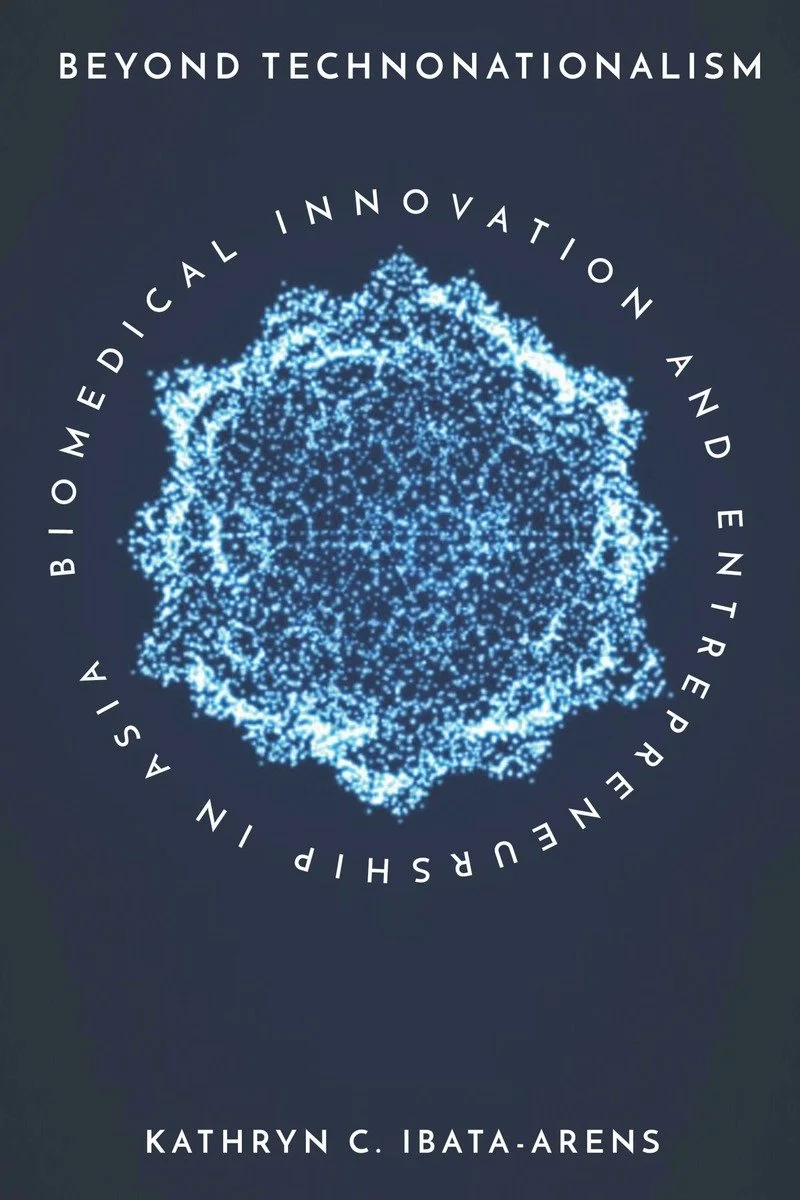Updates.
'Pandemic Medicine: Why the Global Innovation System is Broken, and How We Can Fix It'
Wins Global Health Best Book Award!
Joined a new collaborative book project: the research team of CTSH Project
Pandemic Medicine: Why the Global Innovation System is Broken and How We Can Fix It.
In 2016, I was traveling in China interviewing entrepreneurs and investors for my 2019 book about biomedical innovation in Asia and in Guangzhou had an “aha” moment. I have discussed the backstory elsewhere, but suffice it to say that the encounter introduced me for the first time to the innovative drug discovery potential of biological materials found in natural medicines. I also learned that despite the tremendous potential of these materials, scientists, entrepreneurs, and governments face two stark realities. First, the continued threat to the survival of biodiverse ecosystems critical to the potency of active chemical ingredients, and second, the failures of the global intellectual property rights system to incentivize and foster innovations that would develop curative medicines accessible by all people. Pandemic Medicine analyzes what went wrong in the 20th century and proposes a way to fix it now.
" Ibata-Arens has offered an insightful work that develops greater understanding of the rise in diversity of national innovation policies. It is an important perspective from which to view the shifts that will occur as the power balance in innovation moves to more points around the globe. "
— Gerald Hane, The Developing Economies

Preview a few of my policy briefs and blogs here.
-
A look inside biomedical growth in Asia.
In the biomedical industry in particular – pharmaceuticals, genomics, stem cell therapies, and medical devices – countries aim to not only lead in global market share for their products, but also set international standards.
-
How Asia Can Avoid the Lifestyle Drug Trap
In a fast-paced high-growth economy – picture any big city in Asia – urban professionals are under pressure to “get back to work” even when they feel ill. The resulting demand for “fast-fix” remedies could lead to over-prescription and societal ills. Opioid abuse that is plaguing the United States and other Western countries could well become a major problem in Asia. Governments and pharmaceutical companies in the region should continue to focus on driving innovation in the development of treatments and resist the temptation to pursue the easy profits of the lifestyle-drug approach.
Preview
My Books.
-

Pandemic Medicine: Why the Global Innovation System is Broken and How We Can Fix It.
Despite a century of advances in modern medicine, as well as the rapid development of Covid vaccines, the global pharmaceutical industry has largely failed to bring to market drugs that actually cure disease. Why? And looking further ... How can government policies stimulate investment in the development of curative drugs? Is there an untapped potential for "natural medicines" in new drug discovery? How have private–public sector partnerships transformed the ways we innovate? To what extent are medicinal plant biodiversity and human health codependent?
Addressing this range of increasingly critical questions, Kathryn Ibata-Arens analyzes the rise and decline of the global innovation system for new drug development and proposes a policy framework for fast-tracking the implementation of new discoveries and preparing for future pandemics.
-

Beyond Technonationalism: Biomedical Innovation and Entrepreneurship in Asia
The biomedical industry, which includes biopharmaceuticals, genomics and stem cell therapies, and medical devices, is among the fastest growing worldwide. While it has been an economic development target of many national governments, Asia is currently on track to reach the epicenter of this growth. What accounts for the rapid and sustained economic growth of biomedicals in Asia?
To answer this question, Kathryn Ibata-Arens integrates global and national data with original fieldwork to present a conceptual framework that considers how national governments have managed key factors, like innovative capacity, government policy, and firm-level strategies. Taking China, India, Japan, and Singapore in turn, she compares each country's underlying competitive advantages. What emerges is an argument that countries pursuing networked technonationalism (NTN) effectively upgrade their capacity for innovation and encourage entrepreneurial activity in targeted industries.
-

Innovation and Entrepreneurship in Japan: Politics, Organizations, and High Technology Firms
Japan's innovators and entrepreneurs are a real success story against the odds, surviving recession in the 1990s to prosper in today's competitive business environment. Innovation and Entrepreneurship in Japan explores the struggles of entrepreneurs and civic-minded local leaders in fostering innovative activity, and identifies key business lessons for an economy in need of dynamic change. Ibata-Arens offers in-depth analysis of strategy in firms, communities and in local government. Innovation and Entrepreneurship in Japan examines detailed case studies of high-technology manufacturers in Kyoto, Osaka and Tokyo, as well as bio-tech clusters in America - demonstrating far-reaching innovation and competition effects in national institutions, and firms embedded within local and regional institutions. The book is essential reading for academics and students of business, economics, political economy, political science, and sociology.
Want to learn more?
Sign up with your email address to receive news and updates.


